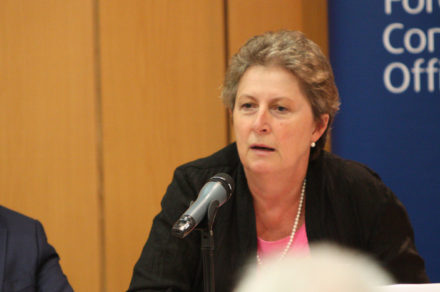

Labour’s most high profile Brexit supporter has called for an end to the uncertainty around the status of EU citizens in the UK following the referendum.
Gisela Stuart, who played a big role in the Vote Leave campaign, has said that the people from the EU living in Britain have been “left in limbo” since the Out vote in June. She argues that these citizens were told they would be able to stay by the Leave camp, and the Tories should not use them as “bargaining chips”.
“There is wide agreement, among the public, politicians and business, that EU citizens are welcome here and that the Government should make clear they can stay,” she said. “This is the right thing to do and what the Leave campaign promised all along.”
Stuart, who will be heading up an inquiry with the British Future think tank into the status of EU citizens post-Brexit, added: “What legal status people will people have? How do they prove eligibility to stay? When is the cut-off date and how do we manage any possible migration surge ahead of it?”
This comes as Labour’s election campaigns chief admitted he was convinced to the Remain cause by Jeremy Corbyn. A leaked email sent from Jon Trickett to the Labour leader shows that he wanted to “amplify the critical, pro-reform part of the agenda on the basis that I accept that I can’t follow my instinct to vote and campaign for No.” The close Corbyn ally also criticised the “Labour Euro-fanatics pressing an uncritical case”.
Speaking to The Guardian, Trickett said that after making his Eurosceptic position clear to Corbyn, the Labour leader sought to win him around to a pro-EU stance. The Hemsworth MP says that Corbyn “set out the reasons why we should argue to remain but reform the EU. I thought ‘there is some logic to that’, I went away, thought about it and told him: ‘You’re right, you convinced me’.”




More from LabourList
Government abandons plans to delay 30 local elections in England
‘The cost of living crisis is still Britain’s defining political challenge’
‘Nurses are finally getting the recognition they deserve’